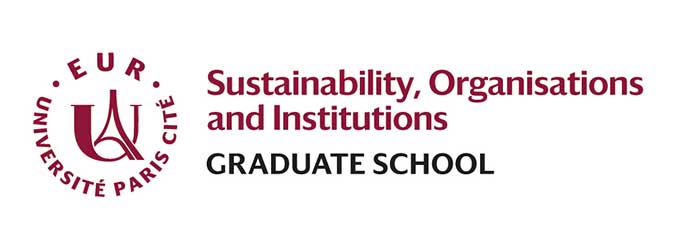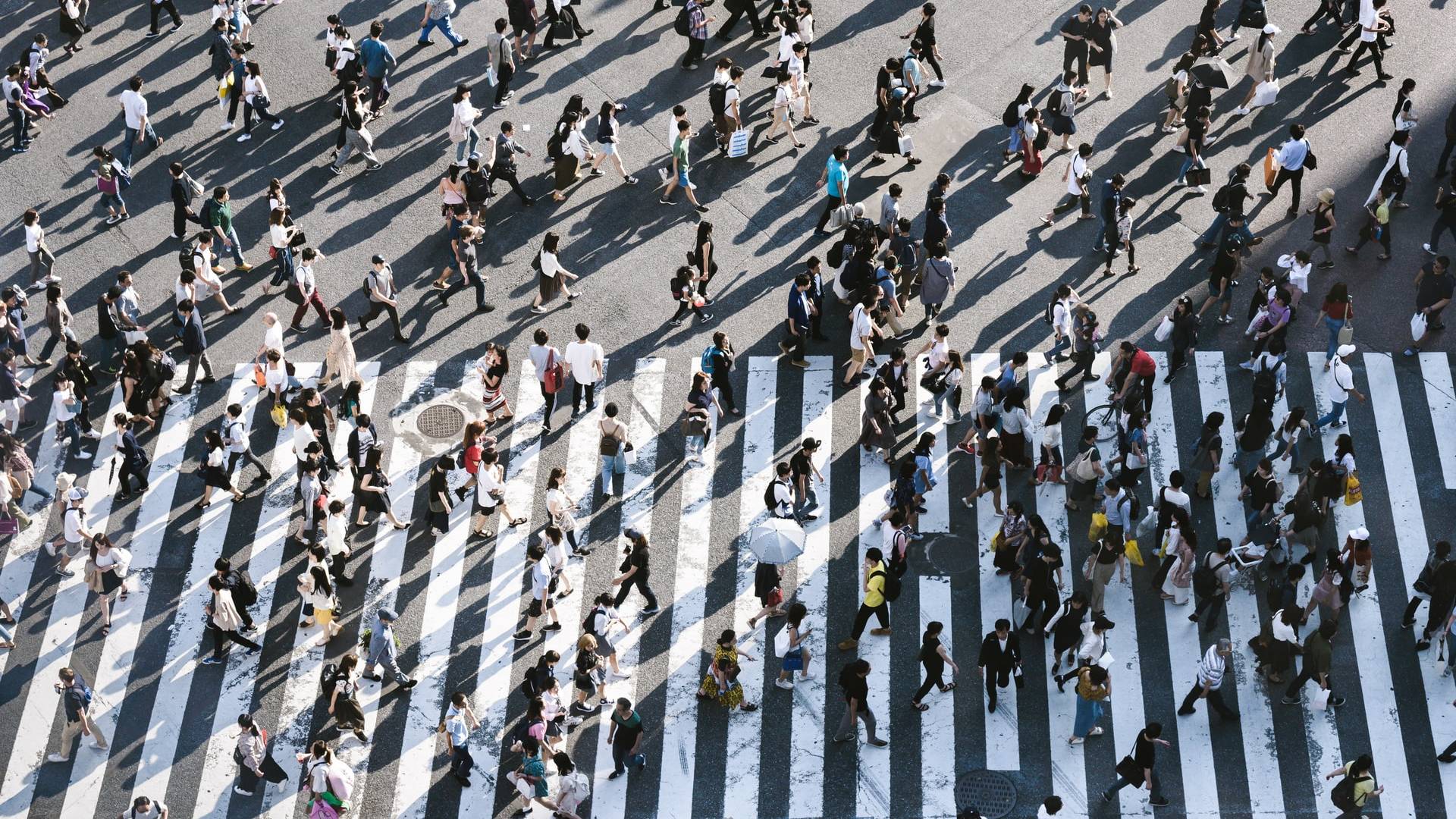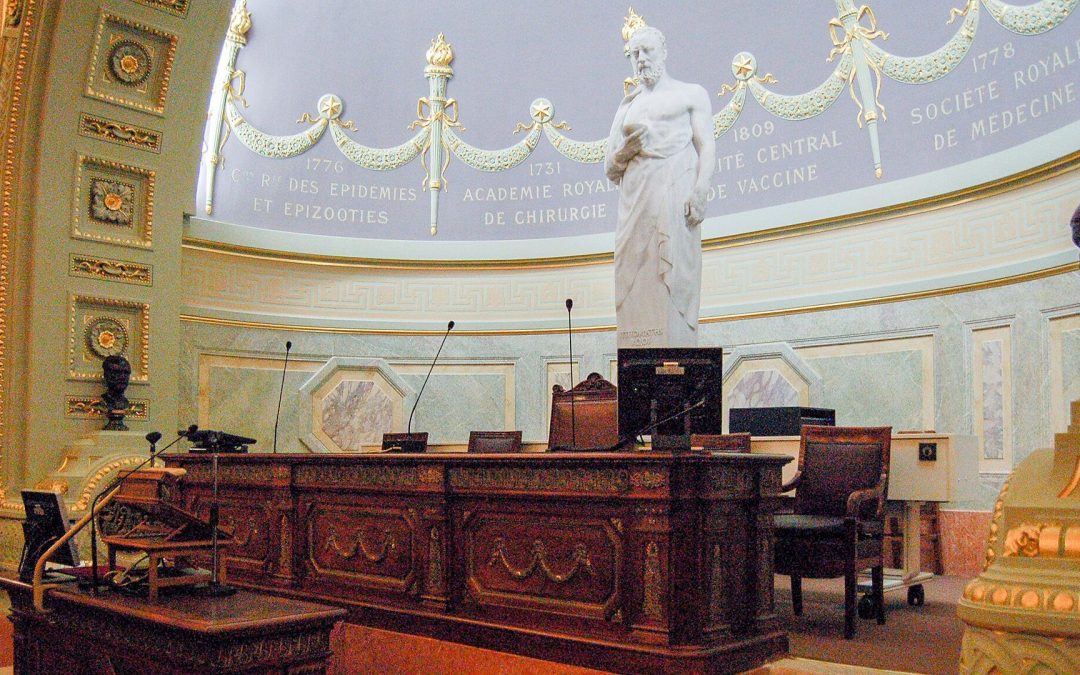Sustainability, Organisations and Institutions
The Graduate School of Sustainability, Organisations and Institutions aims to develop an interdisciplinary research training hub focused on organisations and models that play a structuring role in the emergence of sustainable systems.
These include alternative organisations and production units, such as economic models that integrate ecological and social issues. These models focus on changes in the institutional and legal frameworks as well as new forms of social, political and territorial organisations. Methods of evaluating individual and collective actions based on a systemic analysis are also developed.


Presentation
The issues of sustainability and the responses to the implied climatic, energetic, social, political, economic and organisational challenges call for an evolution or an adaptation of existing models at micro, meso and macro scales. This involves the relationships between stakeholders, rules and regulations, corporate governance, organisational workflow, investment as well as performance criteria, and how all these factors interact with one another at the local and global level. With this respect, the methods of evaluating individual and collective actions must be based on a systemic approach and include the challenges associated with these issues.
Through the strong link between the Master’s programmes and the laboratories, the Graduate School of Sustainability, Organisations and Institutions strives to train high-level experts by focusing on analysing processes that trigger virtuous dynamics, by moving from the analysis of fractures and crises to studying the emerging configurations.
Students at this Graduate School benefit from unique and recognised approaches based on the contributions of French schools of thought (régulation theory, constitutional historical analysis, convention theory, and long-term history, among others).
Contact
Petia KOLEVA
petia.koleva@u-paris.fr
Address
Bureaux 859 et 860
Université Paris Cité
Bâtiment Olympe de Gouges
8, rue Albert Einstein
73013 Paris
Masters
List of Masters taught in French and English:
- APE – Analysis and economic policy:
- Economy and shared management
- Energy:
- International Macroeconomics and financialization
- Management:
- Public law:
List of Masters taught in French:
- Master’s degree in research, consulting and intervention
List of Masters taught in English:
- APE – Analysis and economic policy:
Research
The training of Master’s students is carried out in close collaboration with research laboratories.
For instance, the Master in economic analysis and policy involves the LADYSS research centre at Université Paris CIté and the CEPN research centre at the Université Sorbonne Paris Nord. Half of the students graduating from that Master’s programme pursue a doctoral degree. These two research centres promote pluralistic and critical economic thinking on sustainability, and are opened to other social sciences and experimental sciences.
The LIED laboratory, an interdisciplinary unit focusing on energy, addresses challenges such as energy transition, renewable energies, hypotheses of peak or depletion of resources, dynamics of efficiency and sobriety, economic, social or cognitive consequences of the processes of innovation and the questions of consumption and precariousness.
The Maurice Hauriou Centre, specialised in public law and political science research, focuses on governance and public management (common goods, intelligibility of fiscal norms), the State in Europe and globalisation (notion of borders, economic public order), and energy markets and sustainable development law (environmental democracy, exploitation of natural resources and conflicts).
Finally, the LIRAES laboratory is involved in the economic study of the health system and policies.
Several researchers involved in our Graduate School are active members of the Global Research Institute of Paris, an interdisciplinary initiative led by Université Paris Cité in collaboration with international partners, working on the issues of globalisation.
Laboratories
- Centre Maurice Hauriou (EA1515)
- CEPN – Centre d’Économie de l’Université Paris Nord
- GRIP – Global Research Institute of Paris
- LADYSS – Dynamiques sociales et recomposition des espaces (UMR 7533)
- LIED – Laboratoire interdisciplinaire des énergies de demain (UMR 8236)
- LIRAES – Laboratoire Interdisciplinaire de Recherche Appliquée en Économie de la Santé (EA 4470)
Executives
Petia KOLEVA oversees the Graduate School of Sustainability, Organisations and Institutions, maintaining regular communication with the directors of the relevant Master’s programs.
- Petia KOLEVA
Director of the Graduate School Sustainability, Organisations and Institutions
University Professor
UFR Geography, History, Economy and Society
Faculty of Humanities and social sciences
À lire aussi

Suivi des maladies chroniques : un patient sur deux serait ouvert à la téléconsultation
L’étude REACTIVE, coordonnée par la Dre Tiphaine Lenfant et le Pr Viet-Thi Tran et menée par des équipes de médecine interne de l’hôpital européen Georges-Pompidou AP-HP, du centre d’épidémiologie clinique de l’hôpital Hôtel-Dieu AP-HP, de l’Université Paris Cité, de...

Journée internationale des femmes et des filles de science : célébrer celles qui font avancer la recherche
Le 11 février marque la Journée internationale des femmes et des filles de science. À cette occasion, l’Université Paris Cité réaffirme son engagement en faveur de l’égalité femmes-hommes et célèbre le parcours de celles qui font avancer la recherche. Entre un...

Le Collège de l’Académie nationale de médecine : une première promotion marquée par l’engagement de l’Université Paris Cité
Créé en décembre 2023, le Collège de l’Académie nationale de médecine se veut être un lieu d’échanges entre les académiciens et des jeunes médecins, chirurgiens, biologistes, scientifiques, pharmaciens, vétérinaires. Il réunit ainsi 38 jeunes scientifiques, dont 15...

Journées mondiales sans téléphone portable 2026 : repenser notre rapport au numérique
Chaque année, début février, se tiennent les Journées mondiales sans téléphone portable. Cet événement constitue une opportunité pour la communauté universitaire de s’interroger sur ses usages numériques et d’en analyser les impacts environnementaux, sanitaires et...
